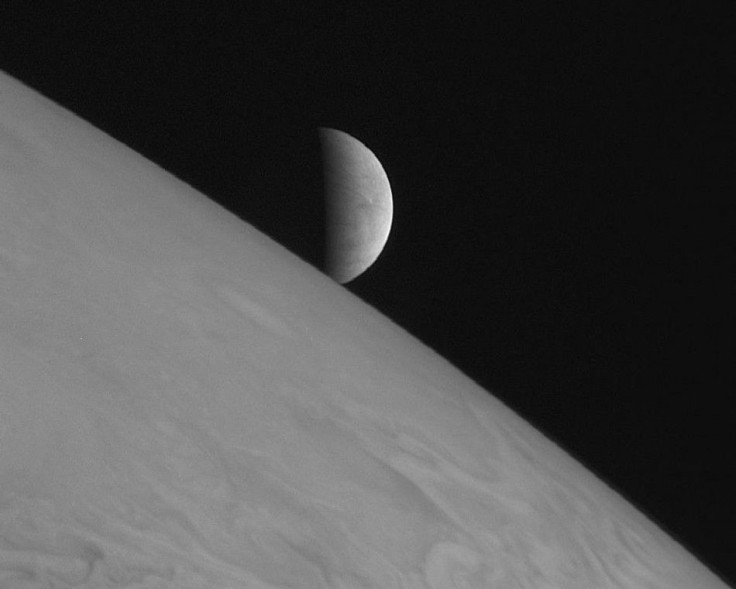Why NASA Says That Life Beyond The Earth May Exist In Jupiter's Moon, Europa

If what you are looking for is life in the solar system, then look beyond the asteroid belt to Jupiter's moon, Europa. It looks like a frozen mass, but it seems to offer the closest bet to life underneath.
Hence, under Europa's icy crust could be an ocean that is heated and is also full of the "building blocks for life." It was in February that the Jovian moon was not suspected to be frozen solid, as people observed that vapour plumes were coming out from its surfaces according to the Hubble telescope data.
Perhaps Europa is the "most hospitable home for life" in our own solar system. After four billion years of tidal heating and a liquid ocean, there may be the existence of life. Launching a human satellite into the system could capture some forms of life in the water vapour that is seen from its surface. However, a crucial mission to capture its "life-forms" have still not been launched, according to dailygalaxy.com.
NASA collected public funds for a mission to Europa. In July, there was a call for proposals for science instruments they could take on the long trip in order to search for signs of life there, according to forbes.com. The possibility of life on Europa drives scientists and engineers around the world to launch the mission, said NASA's John Grunsfeld at the time.
Recently, NASA put out some "re-mastered" images of the moon and exhibited a new video that showed it to be a dark water world underneath a "frozen shell." Many are a bit sceptical about NASA's eagerness to search out Europa's biological potential. For instance, Europa is not using of sunlight, so it would not be having "advanced octopuses" said Kevin Zahnle, a planetary scientist at NASA Ames Research Center, according to forbes.com. Also, there may be no energy source, according to Norm Sleep, a geophysicist at Stanford University. If the rocky floor of the sea is tectonically inactive, it would result in weak hydrothermal circulation, which would not be supportive of life.
But Kevin Hand, an astrobiologist who is associated with NASA's Jet Propulsion Laboratory, said that there is a lot of evidence that has been collected. Due to a "high degree of confidence" that there is a liquid ocean on Europa today, he feels that it has been in existence for billions of years.
However, the deeper question that has to be addressed regards the ocean's activity in peeling away minerals from solid rocks that are thought to be at the bottom. They have to be circulated around in order to nurture life under the sea. Still, Hand says that for the first time in history, while humans possess the tools, technology and capability to explore and understand the question of life beyond earth, "we know where to go to find it. Jupiter's ocean world, Europa."
Source: YouTube/NASA Jet Propulsion Laboratory





















